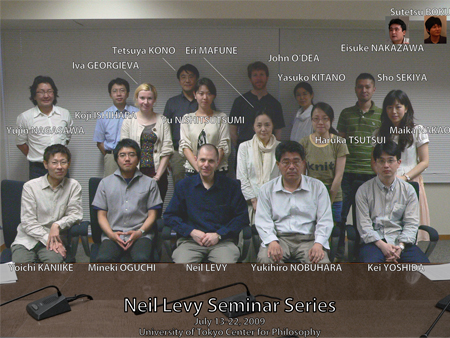Report: Neil Levy Seminar Series
UTCP seminar series by Prof. Neil Levy (Centre for Applied Philosophy and Public Ethics, University of Melbourne) was held from July 13th to 22nd.
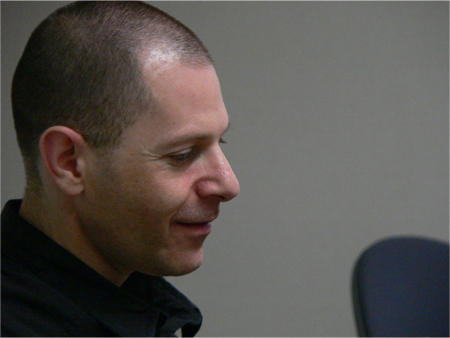
Before reports of every lecture, I would like to introduce Prof. Levy’s works. Then I will briefly explain the background of this seminar series and give my general impression of it.
Prof. Levy began his career, studying French philosophers such as Sartre and Foucault. He then trained himself in analytic philosophy and has published a lot of outstanding works on the philosophy of mind, the philosophy of action, normative ethics, meta-ethics, and applied ethics (see the list of his works at the end of my introduction). Particularly, he has played a leading role in neuroethics. He published the first single-authored book in the field, launched a new journal Neuroethics (http://www.springer.com/philosophy/ethics/journal/12152), and has acted as an editor-in-chief of the journal.
We selected 1 or 2 commentators on Prof. Levy’s each seminar (except the open lecture) from graduate students and postdocs in the program. These commentators examined Prof. Levy’s manuscripts and prepared for long comments in advance. Each seminar started with Prof. Levy’s one-hour lecture, followed by 15-minute comments and his responses to them. After that, we had general discussions. For more details on each seminar, see the reports below.
At every seminar, a lot of crucial questions were raised from various perspectives. Prof. Levy immediately gave penetrating answers to each question. This seminar series provided us with a valuable opportunity to practice our discussion skills in English and to learn much about various topics in neuroethics. I would like to use this space to thank Prof. Levy.
[Reported by Mineki Oguchi]
The list of books by Neil Levy:
Levy, N. 2007. Neuroethics: Philosophical Challenges for the 21st Century, Cambridge: Cambridge University Press.
Levy, N. 2004. What Makes us Moral? Crossing the Boundaries of Biology, Oxford: Oneworld.
Levy, N. 2002. Moral Relativism: A Short Introduction, Oxford: Oneworld.
Levy, N. 2002. Sartre, Oxford: Oneworld.
Levy, N. 2002. Being Up-To-Date: Foucault, Sartre and Postmodernity, New York: Peter Lang.

Seminar 1: Does the Extended Mind Hypothesis Really Matter?
July 13, 2009
Reported by Taichi Isobe
In the beginning of his lecture, Levy introduces what the Extended Mind Hypothesis is. He explains that the extended mind hypothesis holds that the mind is not to be found exclusively within the skull, although its proponents concede that (again, in all but the most unusual cases) the brain is a necessary and particularly significant core of the mind. Instead, it holds that the mind extends beyond the skull, and even beyond the skin, of the person who has the mind, out into the world. After the explanation of the extended mind hypothesis, Levy examines the objections to it a little bit.
Furthermore, Levy discusses the relationship between the Extended Mind Hypothesis and neuroethics. Neuroethicists had better apply this hypothesis to neuroethical discussions. According to Levy, once we recognize that our cognitive success and even our identities as psychological beings depend on extended processes, including processes every bit as mechanical and arational as internal interventions, we ought to begin to assess interventions against their effects, not against their locations. We can strengthen agents’ resources of self-control by altering their environments or by giving them drugs: which we should do depends, I claim, not on the means by which the result is achieved, but on the effects; namely, which achieves the best balance of benefits over costs. It is irrelevant that one intervention is achieved by means that directly target the brain whereas the other directly targets external states; this kind of difference is relevant only when it makes a difference to the costs and benefits.
Levy also comments on Rob Rupert’s discussion. Rupert (2004) prefers seeing the mind as deeply embedded in extra-neural and extra-somatic processes and mechanisms to seeing it as genuinely (although partially) constituted by such processes. Finally, Levy concludes that what matters to us as thinking beings does not depend on how we describe the processes; what matters is their effects.
After Levy’s exciting lecture, Mineki Oguchi’s and Taichi Isobe’s comments and questions followed. Oguchi’s commentary was titled “The Extended Mind, Naturalness, and Cognition.” His questions are as follows:
1. Will the problem of invading naturalness continue to exist even when we completely abandon internalist prejudices? If so, should we focus on questions such as what it is for the extended cognitive system to be autonomous or authentic to address the problem of unnaturalness?
2. Should EM define cognition (or some other mental categories) as the one with a theoretical basis rather than the one that is naively based on our intuition? If so, how and where should we seek such a basis?
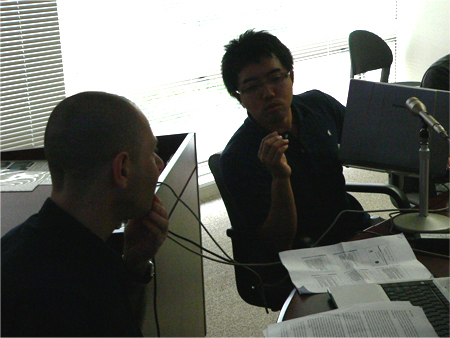
Isobe’s commentary was titled “How can the extended mind theory useful and effective for patients who use BMI? ” His questions are below.
1. If the extended mind theory is right or effective, how should we consider ethical and social problems when we use technologies such as BMI (Brain-Machine Interface) which influence the brain?
2. When LIS patients use BMI, how should we apply the extended mind theory to them while taking care of their identities and minds?
3. How can the extended mind theory be useful and effective for patients who use BMI?
After Oguchi’s and Isobe’s comments and questions and Levy’s responses to them, we had and enjoyed a general discussion with Levy.
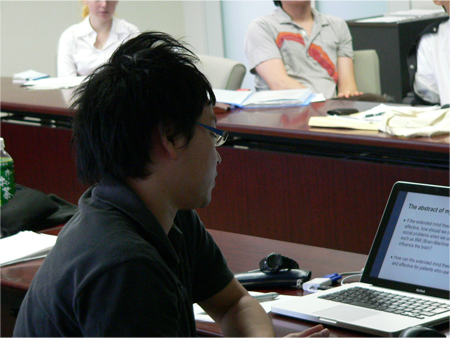
Seminar 2: Does Evolution Explain Morality, or Explain It Away?
July 14, 2009
Reported by Kei Yoshida
In his second lecture, Levy discussed evolutionary explanations of morality and examined whether evolution explains morality or explains it away. Since the emergence of sociobiology in the 1970s, evolutionary explanations of morality have been a serious challenge to those who think about the origins of morality. Some wholeheartedly accept the evolutionary explanations and argue for a deflationary or eliminativist view that evolution explains morality away. Others riposte by claiming that although evolution may explain the origins of morality, the former does not explain the latter away. Levy argued against moral deflationism or eliminativism by contending that there is a difference between proximate and ultimate explanations of moral behavior. The former is about a subjective understanding of our behavior. The latter is about the evolutionary function of our behavior. According to Levy, the evolutionary explanations of morality concern the latter, not the former. They do not explain the proximate level.
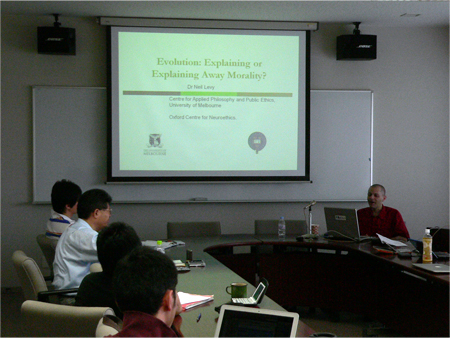
Then Levy went on to examine Sharon Street’s evolutionary anti-realism, according to which the evolutionary explanations of morality demonstrate that moral realism is false. In Street’s view, the moral realist needs to explain the relation between the mind-independent moral facts and the evolutionary force that makes us to care about them, but he/she cannot properly do so. Thus he/she cannot solve what Street calls a Darwinian dilemma. In defending moral realism, Levy proposed a rigidified response-dependent moral realism that identifies moral facts with the facts picked out by actual human beings’ responses. By arguing for a rigidified response-dependent moral realism, Levy tried to meet Street’s challenge.
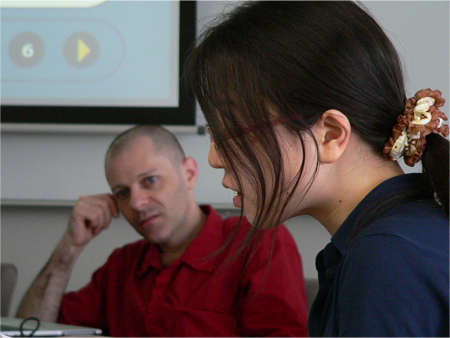
After Levy’s stimulating lecture, Haruka Tsutsui and Kei Yoshida served as commentators on it. After giving a detailed summary of the lecture, Tsutsui scrutinized its second part and asked two questions to Levy: the first one is about the idea of rigidification; the second one is about the universality of morality. As to the first one, referring to the famous Twin Earth thought experiment, she asked Levy what the correspondent of H2O in the moral case is. As to the second one, she asked how Levy evaluates the significance of evolutionary effects compared to cultural influences. In his commentary, Yoshida examined the first part of Levy’s lecture. As Levy admitted, evolutionary explanations of morality are based on the assumption that interactions will be repeated. But Yoshida pointed out that many human interactions are one-shot and thus they cannot properly captured by the evolutionary explanations. Thus, he argued that neuroeconomics that takes one-shot situations seriously is more helpful than the evolutionary explanations.
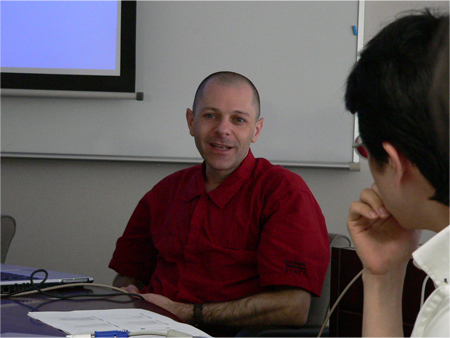
After these commentaries, Levy responded to them, and we had a lively discussion.
Seminar 3: Psychopathy, Responsibility and the Moral/Conventional Distinction
July 16, 2009
Reported by Sutetsu Boku and Sho Sekiya
Below is a summary of Levy’s argument, our questions to him, and his reply to us.
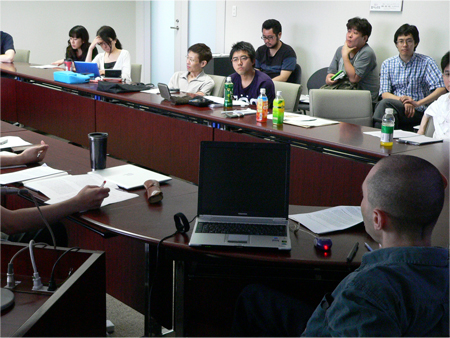
Levy’s argumentI
In the first place, let me summarize Levy’s argument.
Psychopaths are persistent wrongdoers characterized by the lack or decrease of emotions such as guilt, remorse and empathy, and impaired competence of (long-term) planning. According to Blair et al., these features are caused by the dysfunction of the amygdala.
Levy claims that psychopaths are not morally responsible. He justifies this claim as follows:
1. Our access to moral norms are implemented via emotional responses that are triggered in circumstances related to harm to others (this claim is bolstered by the evolutionary explanation).
2. Psychopaths cannot have such responses.
3. 1+2→Psychopaths cannot have access to (core) moral norms.
4. There are necessary conditions for attributing responsibility to an agent, which are knowledge of non-moral facts and that of norms.
5. 3+4→Then psychopaths do not satisfy the necessary epistemic conditions for attributing responsibility to them.
6. Thus psychopaths are not fully morally responsible.
Boku’s first question—about practicability
Boku (UTCP)’s first question is related to the practicability of Levy’s claim.
According to Levy, our access to moral norms are implemented via emotional responses that are triggered in circumstances related to harm to others. Since psychopaths do not have such responses, they cannot have access to (core) moral norms. I will call this criterion of attributing moral concepts, and thus responsibility, to an agent “the criterion of emotion or motivation.” If we fully accept this criterion, what kind of problems come about?
The worry is that other criminals as well as psychopaths may not be responsible according to the criterion. Defendants and their counsels will claim that the defendants be psychopaths or psychopathic people to escape punishments. Fundamentally, we cannot reject these claims as poor excuses because those who commit crimes can be understood as lacking, or having some impairment in, emotion or motivation to avoid the crimes. The very fact that they accomplish crimes may support this interpretation. We should admit that all of the criminals may not be fully responsible, although we are unwilling to do so.
Moreover, it seems that we cannot draw a clear line between psychopaths and other criminals. If so, we should evaluate to what degree the defendants are psychopathic to assess their culpabilities, referring to data such as fMRI images of the amygdala and so on. This process may take times and need the help of experts like brain scientists. After all, Levy’s criterion is hard to put into practice at present.
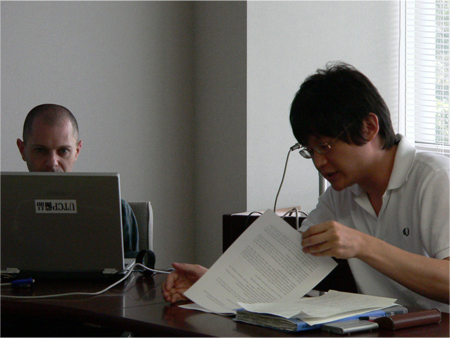
Levy’s reply to Boku
Levy entirely agrees about the difficulty of implementing his suggestion. But he claims that philosophers should not worry such a kind of concern. Philosophers should speculate about the possibility and let people fix the policy.
To the second practical worry that the generalization that all the criminals are not responsible might occur, Levy responds as follows. Blair’s study suggests that non-psychopathic criminals (control groups) perform normally on moral-conventional tasks. Second, a great majority of non-psychopathic violent offenders in prisons use violence reactively not instrumentally. They do not plan to use violence. On the other hand, psychopaths are quick to resort to instrumental violence.
However, since the current checklist of the psychopath is so crude, it may well be that some people who are classified as not psychopathic do lack requisite grasp of moral norms. It may also be that the grasp of norms itself comes in a gradual fashion. If so, we should have a gradual notion of responsibility. But we have no good theory of the gradual concept of responsibility.
Boku’s second question—about the concept of responsibility
Boku’s second question is related to the concept of responsibility.
What does Levy exactly mean when he claims that psychopaths are not responsible?
The concepts of responsibility and of punishment are closely related. In ordinary cases, when we judge someone is responsible, we punish him/her according to his/her fault. When we judge someone is not responsible, we should not punish him/her. So, Levy appears to claim that we cannot punish psychopaths because they are not responsible.
But punishment is a complex concept. Next, we will clarify the concept of punishment, and modify the above interpretation.
Punishment has (at least) two purposes. One is to make offenders to atone for their crimes by applying sanctions (or pain) against them. The other is to reeducate them to have moral norms. When we punish young offenders, the aspect of reeducation is more important. On the other hand, when we punish elder offenders, the aspect of sanction becomes more important. Perhaps the difference of treatment between young and elder people reflects their understanding of moral norms. Since psychopaths are similar to young offenders in that both of them lack moral concepts, we should treat them equally. So, Levy’s claim can be clarified as follows. It actually should mean that we cannot apply mere sanctions against psychopaths without a purpose of reeducating them. In other words, we should punish them to reeducate them if possible--even if they are not responsible.
Levy’s reply
Levy agrees with an ordinary understanding that responsibility is closely related to punishment. In other words, he actually claims that we should not punish psychopaths because they are not responsible. He argues against Boku’s claim that reeducation is an aspect of punishment, and clarifies his claim for the treatment of psycopathic offenders.
He distinguishes between “backward looking” and “forward looking” aspects as justificatory ways of treating offenders worse. The aspect of sanction is backward looking, which has something to do with past action. The aspect of reeducation is forward looking, which has something to do with avoiding reoffending. The aspect of forward looking can include more than reeducation. That includes incapacitation or putting them into prison in some cases.
The forward looking treatments including reeducation as measures for avoiding reoffending are not punishment. He does not think that this is a matter of terminology.
This is why. If someone is being appropriately punished for an action, we are treating him/her worse on the basis of the fact that he/she has performed the act that deserves punishment. We do not doing him/her injustice in fining him/her or incapacitating him/her or putting him/her into prison and so on.
If he/she is not morally responsible, then we cannot justify purely on the basis of past action in treating him/her any worse. Instead, the justification for treating him/her worse has to be forward looking. We can treat him/her worse only if a worse treatment is actually going to produce better outcomes. That is not punishment for the following reason. We calculate criminals’ welfare and others’ equally in a consequentialist way. If he/she is responsible, the thing goes the other way around. Psychopaths should be treated more like carriers of infectious diseases than like criminals. We should not treat them worse than necessary.
Thus, according to Levy, that psychopaths are not responsible means that we should not punish them (this kind of treatment is justified only by a backward looking way), and that we should treat them in a forward looking way.
Boku and Sekiya’s question—about mindreading
According to Levy, the ability to distinguish between moral norms and conventional norms is inadequate for someone to be entitled to possess moral concepts. To understand core moral norms requires understanding the norms in terms of harming others. Thus we should understand others’ pain, fear or sadness to be a moral agent.
We agree with this claim. But we would like to point out “to understand others’ pain, fear or sadness” can be interpreted (or implemented) in (at least) two ways.
To make this point clear, we give a rough sketch of the mindreading debate.
Ordinary people have an ability to predict and explain others’ behaviors in terms of their mental states. The attribution of mental states to others is called “mindreading”. There are two leading theories about the underlying mechanism of mindreading. One is Theory-Theory (TT), and the other is Simulation-Theory (ST).
According to TT, others’ mental states are attributed as the product of cold and intellectual processes. All the representations involved in the processes are exclusively second order, that is, belief about belief, behavior or other expressions of others.
On the other hand, according to ST, others’ mental states are attributed as the product of hot and empathic processes. We make use of ourselves to simulate others’ mental states. We employ the same mechanisms that are at work in the target person, and produce the same mental states as his/her. For example, if we are to understand others’ sadness, we make the mechanism that produces our own sadness at work and produce sadness in ourselves. Finally we understand how others feel. Thus in the ST’s model, first-order representations play an essential role in understanding others’ mental states.
According to Alvin Goldman, a leading figure of ST, there is considerable evidence showing that we use simulational processes to understand others’ basic emotions such as fear, disgust and anger (A. Goldman, Simulating Minds, 2006). Psychopaths may lack these simulational mechanisms.
But, in principle, it is possible that we use a theory-based method to understand others’ emotions. Admitting this kind of route to understand harms to others enables us to reeducate psychopathic offenders to have moral norms and thus to attribute responsibility to them.
To understand moral norms, we do not have to understand others’ harm in an empathic (simulational) way. The understanding of (core) moral norms is two steps. First, we have to understand what others’ harms are. This step is accomplished in a theoretical way as TT suggests. Second, we have to become strongly motivated to behave not to harm others. Whether this step is necessary for understanding (core) moral norms per se is controversial. But it is undisputable that we should conform ourselves to the norms to sustain our community. That is why the second step is needed. An empathic (simulational) process offers us a shortcut to achieve these two steps because simulated emotion helps us to understand others’ harm and also to motivate us. So, an empathic process is superior in the light of evolutionary considerations. It seems, however, the evolutionary explanation explains merely what morality is at present, but it cannot explain or predict what morality will and should be in the future. The important point is that there can be an alternative way.
True, an education program for psychopaths that offers them a theoretical understanding of others’ harms and that develops motivation not to harm others does not exist now. But if we become able to diagnose psychopaths earlier in life and train them in a psychopath education program, we are able not only to reeducate them when they commit a crime, but also to attribute responsibility to, and apply a sanction against, them.
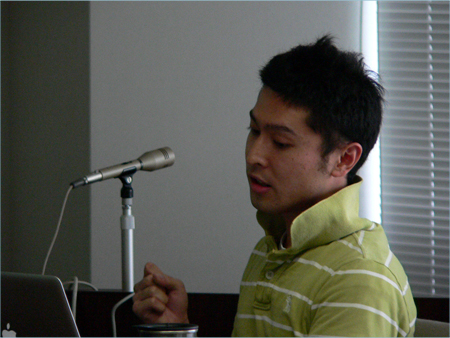
Levy’s response to Boku and Sekiya
Basing himself on some data, Levy argues against our claim.
Psychopaths perform normally on the False Belief Task. But psychopaths perform worse on the attribution of emotions to others. The theory-based attribution of psychopaths seems to be severely impaired (Levy spoke about Cleckly’s anecdote to support this claim).
Levy is skeptical that the theory-based grasp of moral norms works well (perhaps he means that this theory of moral norms does not contain a theory of others’ minds). It may be possible that we can teach them the paradigmatic cases that we call morally bad. But they still lack an understanding of what constitutes the moral concepts. They cannot understand how an action causes bad consequences.
Evolutionary Explanation, Deontology and Consequentialism:
Sekiya’s questions to and comments on Levy and his replies to them
In Levy’s argument, emotion plays two roles in morality: the synchronic role and the diachronic one. The synchronic role is activated in the process of implementing moral motivation, while the diachronic one is in the process of grasping core moral norms. True, evolutionary biology (particularly population genetics with game theory) has been able to explain how altruistic and even self-sacrificial behaviors can be evolved by the mechanisms of reciprocal altruism and kin selection, but it does not explain how morality can be produced in the evolutionary process.
To avoid the intractable task of reconciling the fierce debate over motivation internalism (MI) and also to avoid begging the question by choosing between opponents and proponents of MI, Levy stressed the importance of an independent criterion for the attribution of moral beliefs. Hence, he offered an evolutionary explanation as an independent criterion for the purpose. In this kind of evolutionary explanations, however, the status quo is considered to be the best without reflection. We have to rethink about why we can say that morality (not altruism) is adaptive.
Levy delivered that these two objections fail because he is attempting to explain not the emergence of all the contents of morality but the emergence of the core component of morality, which is altruism. Although he acknowledges that he has no good explanation of how all the contents of morality emerged from altruism, he thinks it plausible that altruism is a core component of morality. Similarly, because he does not aim to explain the content of morality, he does not suppose that morality is adaptive; in fact, he suspects that morality is not adaptive. Levy highlighted that his argument is confined to the building blocks that comes from remote ancestors.
Another problem which concerns the relationship between consequentialism and deontology will arise. What makes the problem more difficult is that consequentialist judgments are apparently part of moral judgments. In other words, consequentionalism is not always antagonistic to morality (perhaps as long as it does not violate deontological ethics, but some may refute this point). In a manner, the fact that ventromedial prefrontal cortex (VMPFC) patients can make consequentialist judgments might be taken up to underpin an opinion that they are partly morally responsible when they commit crimes which violate the consequentialist principle. The position of consequentialism in morality is crucial to decide whether psychopaths are morally responsible. If one thinks that consequentialist judgments are part of moral judgments, then psychopaths who can make consequentialist judgments are partly morally responsible. If one thinks that consequentialist judgments are surely part of moral judgments but insufficient to be moral, then psychopaths are either partly responsible or not responsible. If one thinks that consequentialist judgments are not moral judgments at all, then psychopaths are not morally responsible.
Levy cautiously limited his conclusion to core moral norms (perhaps, the no-physically-harm-to-others principle) and suggested the domain of morality be extended to actions outside the core. However, I doubt that this is the only way. In fact, VMPFC patients allegedly judge most moral dilemmas as do healthy controls. This is strong evidence that other ways to grasping moral norms exist, although they could not be what Levy calls core moral norms. If this is the case, the psychopaths’ responsibilities need to be judged not only individually but also circumstantially.
Levy agreed that he might be begging the question against consequentialism, assuming that deontology is true. However, what makes it wrong to push a fat man’s back and give him death is a genuine harm, which is a key component of moral norms. Moreover, he suspects that psychopaths are unlikely to be articulating a consequentialist theory as the normal intelligent subjects are. Thus, psychopaths are not morally responsible.
Seminar 4: Resisting Weakness of the Will
July 17, 2009
Reported by Iva Georgieva
The comment of Neil Levy’s on the question “Change of Will and Change of Identity”
My comment was in regard to Neil Levy’s lecture “Resisting Weakness of the Will” and suggested the possibility that changed will causes change of identity and vice versa, or respectively causes weak-willed actions. Thus, main points focus upon the idea of the personal states and their changes as a cause for the change of will but not personality ones.

Professor Levy’s argument is that there is no such thing as a psychological kind that corresponds with the occurrence of weakness of the will. His conclusion is that because of this the weakness of will can occur in various types of personality and is due to the depletion of System II resources (according to cognitive psychology) which results in a judgement-shift.
Nevertheless, during his discussion, he points out that the environment as a strong premise for one’s identity features can also be an important factor causing weakness of the will. He gives examples for cases when a family atmosphere requires immediate response to acquiring desired things (not thinking in the “long-term” delaying perspective) and thus affecting the ego depletion process.
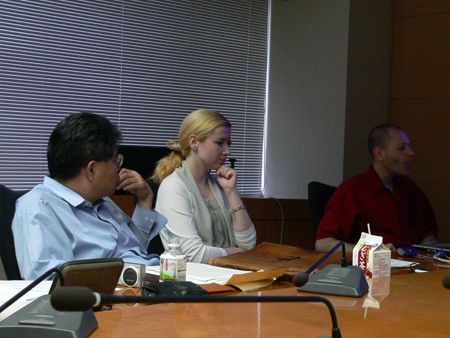
The implication made by my comment about the “Resisting Weakness of the Will” addressed two major ideas: the change of will is preceded by personality (identity) cause or is a temporal change. In other words, the change (weakening) of the will is not a brain process with temporal characteristics but an overall personal predisposition. Levy’s idea is that it is only a matter of sustaining the System II resources so that a decision making is not performed in the weak-willed period. But he sustains that based on desire, driven by self-interest personalities (psychopaths, also sub-clinical border-line persons) have the alteration and lack of planning policy and prolonging of the goal pursuit.
Moreover, Levy himself regards the term “ego depletion” as misleadingly making direct connotations of psychological premises of the System II resource overconsumption. That is why a strict relation to a physiological phenomenon leads to a psychological interpretation. Still, Professor Levy finds no better term to be used in that case so the explanation of not an identity issue here is very important.
Another suggestion that was discussed by Professor Levy is about the possibility of a certain cognitive literacy about the ego depletion case and the resulting weakness of the will. It was asserted that such a constant available epistemic and volitional policy is a difficult task and seems a difficult practice to be achieved. In any way, the exertion of restricting and liberation of cognitive load is an ability that we can learn and apply in everyday situations.
In conclusion, Neil Levy’s concepts of ego depletion and weakness of will are being centered on the transition between System I and System II resources and not so directly connected with personal characteristics of the subjects, environment specifics or a special literacy (training) on the case of not being able to act according to one’s decided solutions or best judged actions. But the presented problems still have a connection to the idea in “Resisting Weakness of the Will” and can enrich the study.
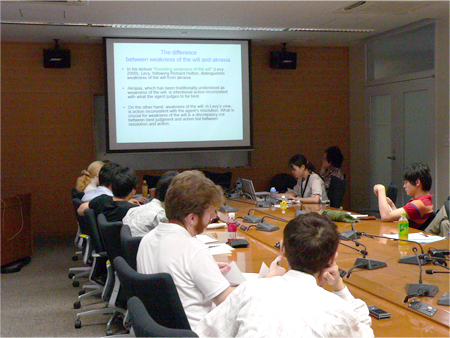
Lecture: Social Engineering: A Defense
July 22, 2009
Reported by Sutetsu Boku
Below is a summary of Levy’s argument, and my small question to him, and his reply to me.
Levy’s argument
Happiness was a constant preoccupation of philosophers prior to the modern era. But, today, they pay little attention to it. As Haybron suggests, the reason for today’s neglect is the rise of the doctrine that people are the best judges of their own good.
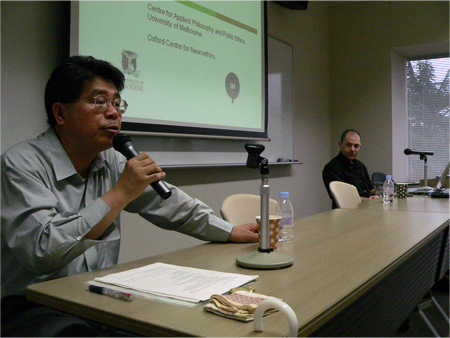
The findings of the social sciences, however, suggest that the doctrine is not tenable, that is, we are not always the best judges of ourselves. First of all, we are not good at forecasting our own affects and we have hyperbolic discounting. Second, we are cognitively biased: confirmation bias, attitude polarization, sleeper effect, positive illusions and so on. Moreover, we suffer mental contamination: when we are presented new arguments or claims, we tend to believe them even after we are told these arguments are not true.
So, we should avoid or decrease the effects of these biases to accomplish our well-being.
But the personal debiasing strategy is very difficult for the following reasons: you have to recognize the need of debiasing; even if you recognize the need, overconfidence limits the efficacy of the personal debiasing strategy; the strategy is costly and time-consuming to implement; our judgments are not made by conscious deliberation, which also limits the efficacy of the strategy; we have to keep being motivated and aware of the direction and magnitude of the biases; moreover, conscious reasoning calls for sufficient cognitive resources.
Hence the personal debiasing strategy may not be effective. Thus, we should implement social policies which shape our environment that weakens the effect of the biases and enhance people’s well-being.
I would like to mention only two examples in Levy’s proposals for social policy. First, since we suffer mental contamination, we should rethink about the freedom of speech which presupposes our sufficient ability to assess arguments. Second, we should also limit people’s options to avoid hyperbolic discounting.
In effect, Levy claims that we should abandon liberalism and instead accept paternalism to some degree.
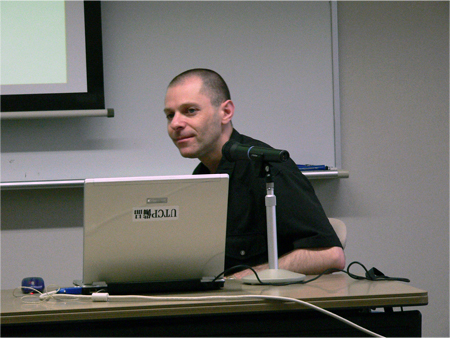
Discussion
Many questions are raised by the participants. It seems to me, most of the questions are related to practical problems such as who should judge people’s good and how.
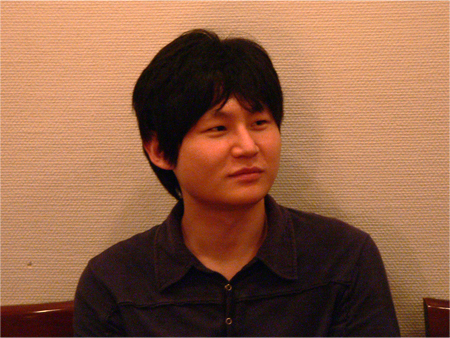
My question is about the interpretation of a study of LIS (locked-in syndrome) patients that show “hedonic adaptation” phenomena.
LIS is a state of almost total paralysis following a stroke. Most sufferers do not have voluntary controls over any actions other than to blink. Nevertheless, their higher brain function and consciousness remain intact. We tend to think LIS patients would be unhappy.
But, according to Bruno and colleagues’ study, LIS patients as well as normal controls reported their personal well-being states in the last two weeks were around +2 point on average (“+5” is the happiest in the subjects’ life and “-5” is the unhappiest). Levy interpret these data as strongly suggesting the powerful force of hedonic adaptation. Hedonic adaptation makes us poor affective forecasters.
I pointed out that the data can be interpreted as showing that social engineering is not useful as a way to enhance people’s well-being. This is why. The data suggest that people’s degrees of happiness keep constant at +2 point regardless of their conditions. If this is the case, we may not be happier--even if the policies that Levy suggested are implemented.
Levy replied as follows. The LIS patients in the study were already hooked up (quite literally) in various infrastructures which enable them to participate in an active life. They had access to internet and sent e-mails and so on. So, their report was affected by a lot of engineering.
As Levy suggested (and I agree with him), the fundamental problem is that skepticism about perspective reports generally lead to skepticism about the affect of a forecasting claim (a hedonic adaptation claim). People may simply forget their former level of welfare and adapt to the current state. If this is the case, there is no measure of happiness that supports the affect the forecasting claim and that social engineering strategy demands.
We firmly believe that we can judge how we are feeling or what we are thinking about at present. This is the minimal form of liberalism. If the premise is revealed to be untenable, we should push the social engineering strategy further to paternalism and we should come to trust experts to judge even our own current states. Anyway, it seems to me, more empirical evidence as to happiness is needed.
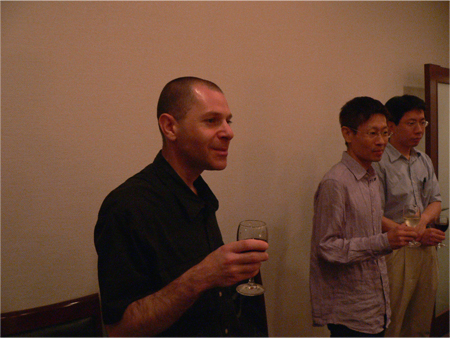
Seminar 5: Cognitive Enhancement and Intuitive Dualism
July 22, 2009
Reported by Eisuke Nakazawa
In his last lecture, Professor Levy gave a new perspective to the problem of cognitive enhancement. He examined a common response to cognitive enhancement and its background: an implicit dualistic intuition. Although there are many arguments about cognitive enhancement, I think nobody has sought this approach.
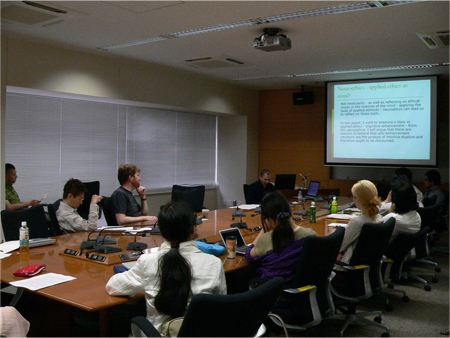
In existing studies, ethical worries about cognitive enhancement are examined from the viewpoints of safety, fairness, social constraint, personal identity, authenticity and so on. But concepts like authenticity are ambiguous, and thus still questionable. In this lecture, Levy discussed the concept of authenticity by showing that it had been unfounded. He supposed that the concept of authenticity furtively borrows its own authority from a common implicit dualistic intuition.
His strategy for examining cognitive enhancement in the light of an implicit dualistic intuition has two components as follows:
1. Dualism is intuitive for most of us.
2. Violations of intuitive categories can give rise to negative moral evaluations.
It was interesting that Levy employed empirical methods like psychological statistics for tackling these matters instead of traditional philosophical methods. Regarding the first component “dualism is intuitive for most of us,” he uses Bering’s data on afterlife beliefs. But regarding the second component “violations of intuitive categories can give rise to negative moral evaluations,” Levy provided no data.
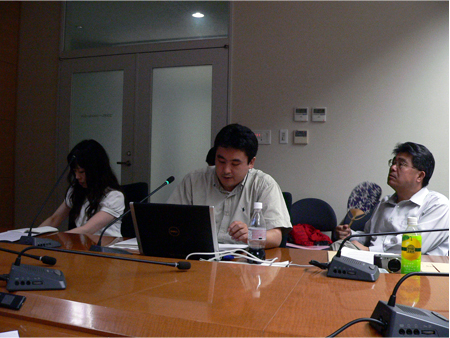
In my response to Levy’s lecture, I tried to supply empirical data for Levy’s suggestion. As he said, my survey was not so well formed about the contents of questions and about the method. Each questionnaire would need to be improved further, and the conditions of my survey were not so well regulated. Even so, I think Levy’s demand was roughly confirmed by my survey. I agree with Levy’s empirical strategy to tackle with the problems of cognitive enhancement, and then I think it requires further investigation.
